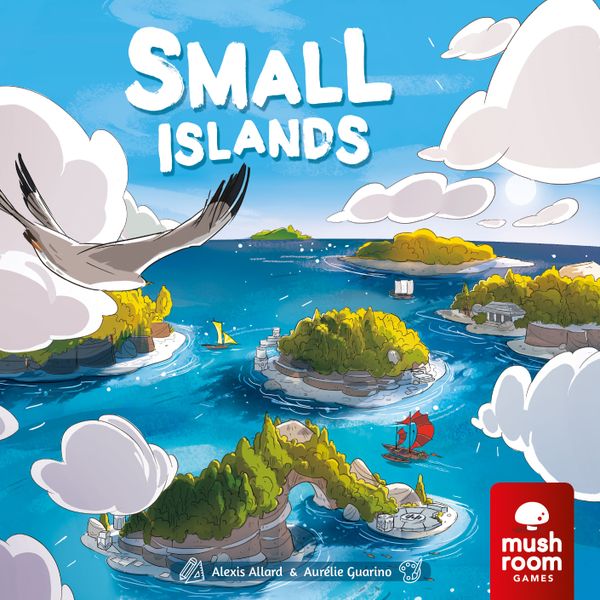Small Islands (2018) Board Game
Small Islands is a board game released in 2018, designed by Aurélie Guarino. It falls under the categories of exploration, nautical, and territory building, with gameplay consisting of push your luck, solo/solitaire game, and tile placement mechanics. The game is suitable for 1 to 4 players, with a runtime of around 30 minutes and an age recommendation of 8 and above.
Game Components of Small Islands
How To Setup Small Islands
To set up Small Islands, players start by choosing their player color and taking the corresponding Houses and Bonus tokens. The first player determines the placement of the four Starting Tiles, ensuring that islands connect and seas flow logically. The Landscape Tiles are shuffled and placed face down as a Reserve Stack. Three Landscape Tiles are drawn and placed face up beside the Navigation Tile. Each player receives two Landscape Tiles and one secret Objective Card. The remaining components, including Ship Tiles and Prestige Tokens, are placed within reach.
Gameplay Mechanics and Game Objective
Player Experience
Small Islands offers a engaging and strategic experience, despite its simple rules. Players must balance exploring new islands with strategically placing their Houses to maximize their score. The game is highly replayable, thanks to the variety of Objective Cards and the different setups each game can have. It is particularly entertaining with the full player count of four, as it introduces more complexity and interaction among players. However, it remains enjoyable in solo mode, where the player competes against an AI opponent, Alexis Allard.
Pros
Cons
Personal Thoughts on Small Islands
Small Islands is a solid and sleek tile-placement game that will appeal to both casual and experienced gamers. It is an excellent gateway game for those new to more complex tile-placement games like Carcassonne. The game’s high replayability and the inclusion of solo and advanced modes make it a valuable addition to any game collection. However, it may not be as strategic as some players expect, and the reliance on luck in tile draws can be a drawback. Overall, it is a fun and challenging game that encourages strategic thinking and adaptability.
We are supported by our audience. When you purchase through links on our site, we may earn an affiliate commission, at no extra cost for you. Learn more.

